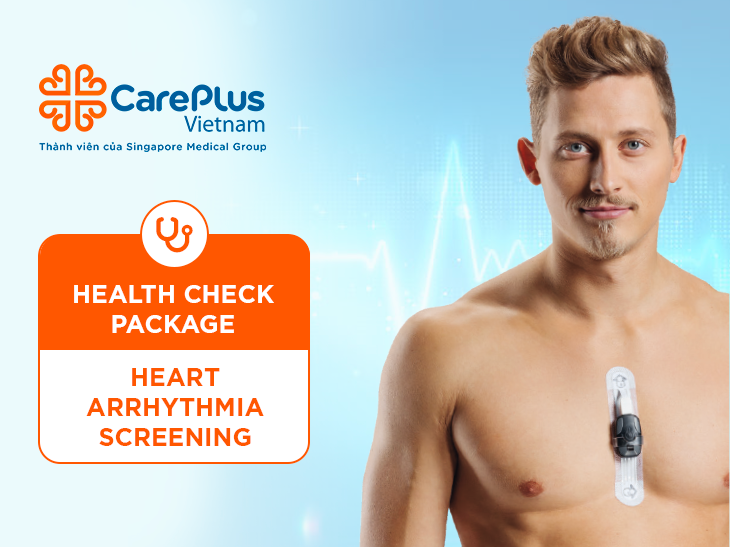Heart Arrhythmia Screening Package

What is cardiac arrhythmia?
The heart is like the main engine, responsible for pumping blood throughout the body, from the brain to other organs. To meet the needs of organs, the heart must contract steadily at a frequency of 60-100 times/minute.
The heart is equipped with a rhythm emitting system that operates in a harmonized and fully automatic manner. If the pacemaker system is damaged, the heart can beat too slow or too quick. This leads to lacking blood and be not be able to work.
The most dangerous condition in arrhythmias is sudden death, which means that the heart suddenly stops working. The chance of saving a life outside the hospital is very low.
Cardiac arrhythmias account for 80% of sudden death cases. Therefore, the examination and screening of cardiac arrhythmias are very essential.
What are the common types of arrhythmias?
- Regular tachycardia: supraventricular tachycardia, ventricular tachycardia.
- Regular bradycardia: sinus node failure, atrioventricular block (block)
- Irregular rhythm: dual-rhythm extrasystole, triple rhythm
- Complete arrhythmia: atrial fibrillation
What are the symptoms of arrhythmia?
Most people rarely notice heartbeats. Arrhythmias patients often feel the heart-pounding, palpitations. This sensation can occur when there is a stimulus (startling, anxiety, etc.) or it may appear suddenly and spontaneously without cause.
Symptomatically, the most dangerous symptom of arrhythmias is fainting (complete loss of consciousness). This is a warning sign of serious heart disease that must be treated early.
MONITOR TODAY FOR EARLY DETECTION OF CARDIOVASCULAR DISEASES AND PREVENT THE RISKS OF NEMONOMIA.
STANDARD CARDIOVASCULAR SCREENING DISEASES PACKAGE:
1. DOCTOR'S CONSULTATION
|
2. IMAGING
|
3. TESTS
4. FUNCTIONAL EXPLORATION
|